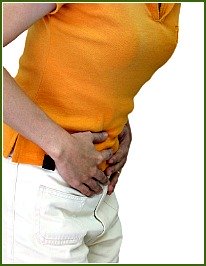Greetings and welcome to 2020! Do you tend to suffer with stomach cramps? Does it come on after meals or during stressful periods? Would you describe yourself as being prone to abdominal pains every now and then? Abdominal cramps are indeed very common. Most times, they are brought on by conditions like trapped wind, indigestion, acid reflux, constipation, food poisoning, menstrual pain in women, stress and tummy bug following a virus infection. Thankfully, such stomach cramps do not often lead to serious consequences. If you are usually well and do develop sudden onset pain in your abdomen, it is very likely that such pain could have resulted from any of the above conditions.
 The following are seven top tips that would help reduce your discomfort or indeed help cure you of stomach cramps:
The following are seven top tips that would help reduce your discomfort or indeed help cure you of stomach cramps:- Keep A Dairy. If you are prone to abdominal cramps, keep a diary. Each time you have one, write down all you have eaten in the previous four hours up to when the pain developed. This would include drinks or alcohol too. Examine your diary after a few times to see if a pattern develops and avoid whatever you notice seems to be a recurring factor, where possible and see if that helps.
- Improve Your Digestion. Most times, stomach or abdominal cramps results from a poor digestion. Small amounts of pineapple, pawpaw (papaya) or ginger root drinks before or after meals have been shown to help improve digestion. If you suffer with indigestion regularly, trying these as well as eating small regular meals devoid of lots of spices would help. If you suffer with trapped wind or gas a lot, try peppermint capsules or drink peppermint tea
after meals.
- Go For A Low FODMAP Diet. FODMAP stands for Fermentable Oligo Di Monosaccharides and Polyols. These are a type of sugar found in foods. They are very osmotic in nature - meaning that they draw water from the lumen of the bowel into the food. They cause a lot of bloating, cramps, diarrhea, gas or winds and constipation. You can read more on FODMAPs Diet here if you tend to suffer with bloating, irritable bowel syndrome (ibs) or constipation a lot.
- Test For Lactose Intolerance And Celiac Disease. If you suffer with lots of abdominal cramps and diarrhea intermittently, as well as bloating, you will need to see your doctor to have a test for lactose intolerance and celiac disease. Lactose intolerance is very common than most people realize. After
infancy, many people are unable to produce the enzyme that is required to breakdown and digest milk. When they eat any food with significant amount of lactose, they are unable to digest this and becomes bloated, develop abdominal or stomach cramps and diarrhea. So too are those who have sensitivity to gluten containing food like wheat (bread, some pasta, etc). See you doctor to get tested now. If you are unable to see a doctor ten try eliminate milk and or wheat from your diet for a month and see if it makes a change to your frequent stomach troubles.
- Menstrual Cramps? Take Good Pain Killers Before The Pain Starts. Are you a woman with period pains or menstrual cramps every month? Overcome your pain by taking pain killers like Mefenemic acid or Naproxen, 500 mg TWICE Daily for two to three days before the expected date of your menses and continue for another two or three days into your period. If you wait until your period comes before you start taking
pain medications, it is already too late then. Your pain may not go away with pain killers. Check with your doctor that these medications are okay for you to take. Avoid them if you suffer with asthma or indigestion or stomach acid. Take Paracetamol (Acetaminophen or Tylenol) instead in the same way. Also using warm or hot water bottle may also help.
- Get Your Bowels Moving. Constipation is another very common cause of stomach cramps. Get plenty of fiber in your diet if you can tolerate it. If you suffer with irritable bowel syndrome, too much fiber would worsen it if you have the constipation dominant variety. Have natural aids like psyllium husk or powder, aloe vera, flax seeds, prunes and probiotics in your diet every day. These are also very good colon cleansing agents and would help improve your overall health. Never forget to drink plenty of water. Yes. Plain water every day. There is no better medicine than water for the bowels. 2 to 6 liters a day
depending on whether you live in a cold or hot and dry country.
- Pain For More Than One Hour? See Your Doctor. If you have abdominal or stomach cramps lasting for more than one hour and you are not getting better, it is time to see your doctor. You will benefit from a thorough physical examination and perhaps urine, blood or x-rays and scans to help pin point the probable cause of your pain.
I hope you found this week's edition of your Abdopain Weekly. Next week, we shall be looking at "7 Top Ways To Help Improve Your Digestion". See you then.

|

 The following are seven top tips that would help reduce your discomfort or indeed help cure you of stomach cramps:
The following are seven top tips that would help reduce your discomfort or indeed help cure you of stomach cramps: